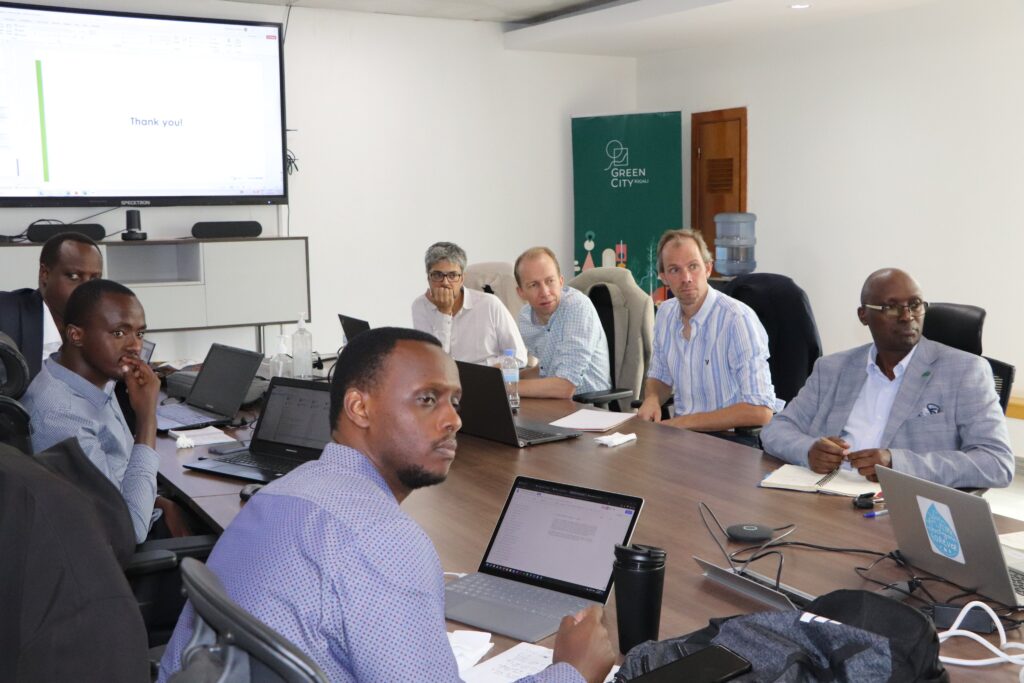FutureWater and the Rwandan firm and consortium partner ENTREM presented interim results of the Integrated Strategic Water Resources Planning and Management project.
The key objective of this study is to support the country on its path towards sustainable development towards 2050 by identifying strategies to better regulate and manage the available water resources through natural and man-made storage infrastructure, like reservoirs, groundwater, lakes, and wetlands. One of the most important threats to these grey and green infrastructures is the high sediment loads they receive due to sub-optimal land management. The preparation of guidelines on how to integrate Nature-based Solutions into the development and how to adapt related national policies and explore possible financial mechanisms like Payment for Ecosystem Services are part of the strategic study also.
The results so far have been used to identify in a participatory way a number of so-called flagship projects: projects that Rwanda wants to take forward on the short term which should be transformative and exemplary and help the country to achieve its ambitious Vision 2050. Several bilateral stakeholder meetings were held with national authorities representing the energy sector (REC), water supply and sanitation (WASAC), agricultural sector (RAB), transboundary (NELSAP) and environment (Ministry of Environment), besides several meetings with the beneficiary of the strategic study: Rwanda Water resources Board (RWB).



